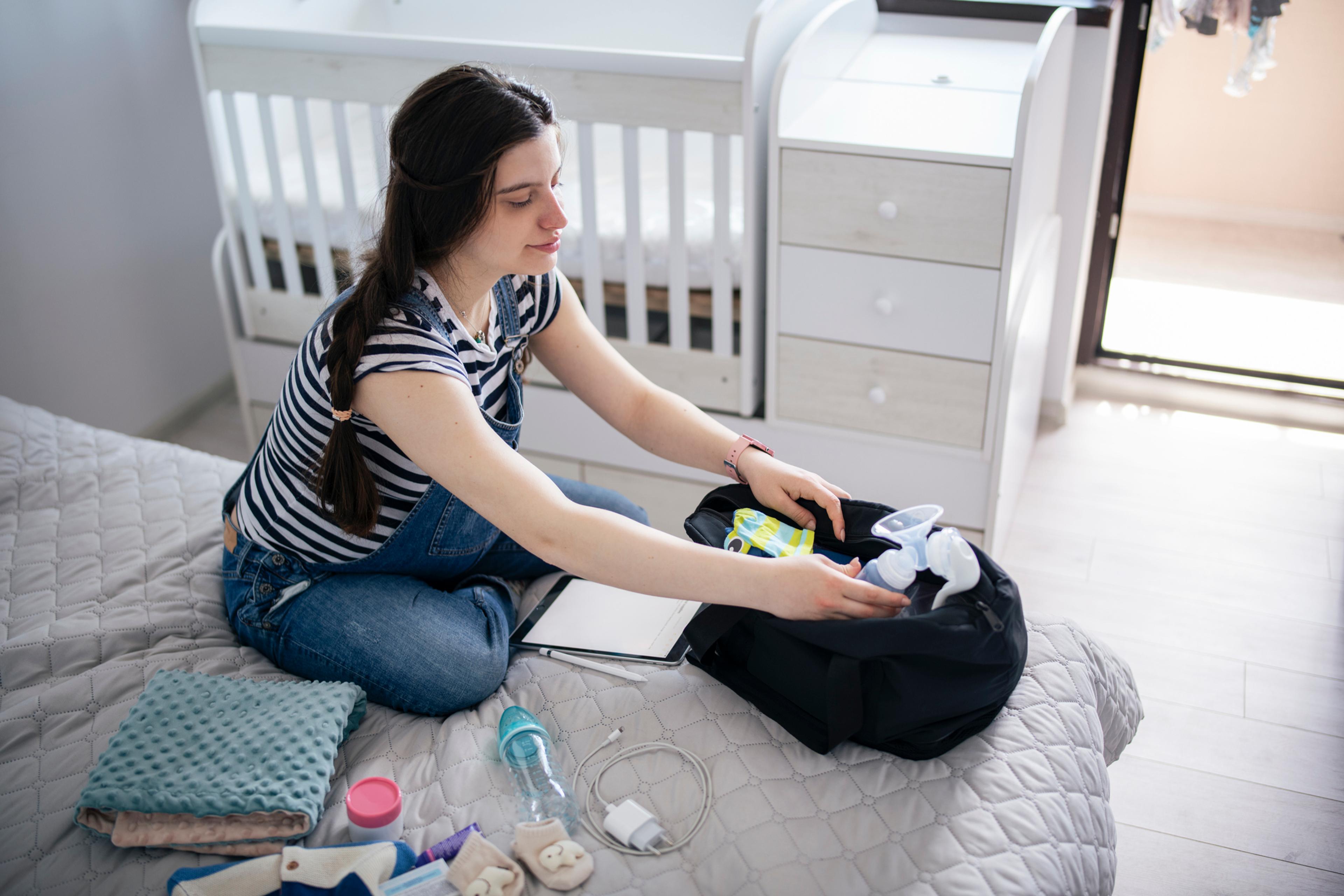Hospital Checklist for First-Time Parents
Amy Barczy
| 4 min read
Amy Barczy is a former brand journalist who authored...

Preparing for the arrival of a new baby can be overwhelming, especially if this is your first child. Planning can help you feel more confident as the baby’s due date approaches. If you’ve chosen to deliver your child in a hospital, you’ll want to start gathering documents and packing a bag with essentials for yourself and your newborn as early as the beginning of the third trimester of your pregnancy as some babies come earlier than expected.
Understand your health insurance benefits
When choosing a hospital to deliver your child, check with your health insurance company to understand which facilities are in your network and to get an estimated cost. Blue Cross Blue Shield of Michigan and Blue Care Network members can check their benefits online by logging in to their member account at bcbsm.com, or by using the BCBSM Mobile App.
Know your maternity leave benefits
If you are employed, you may be entitled to maternity leave benefits after the birth of your child. Find out if you qualify for short-term disability insurance, and/or for leave benefits offered by the Family and Medical Leave Act (FMLA). Benefits and paid leave policies vary by employer, so be sure to check with your human resources office during your pregnancy.
Prepare your paperwork
Hospitals will require paperwork up front when you are admitted. This includes the following:
- ID
- Health insurance card
- Any other medical cards including prescriptions
- Medical records if the hospital doesn’t already have them
What to pack in your hospital bag
Hospitals will provide certain amenities during and after delivery for mothers and newborns. For mothers, they will provide you with a hospital gown and socks during labor; as well as plenty of water and ice. After delivery, they will provide you with large maternity pads, and can often provide nipple cream and other breastfeeding support items including a breast pump to use in the hospital. Mothers and partners often can get hospital meals after the birth of the child. For newborns, hospitals will supply diapers, wipes, a body suit and receiving blanket, nasal aspirator and other essentials during your stay. However, if you prefer to use your own items, pack them to bring with you.
Packing list for baby:
- Blankets or hats to keep them warm when traveling, especially if the weather is cold outside
- Car seat for infants
- Outfits to come home in
- Pacifier
Packing list for mom:
- Breast pump, though many hospitals can provide you with one to borrow during your stay
- Comfortable, loose-fitting clothing for after delivery and going home
- Glasses or extra contacts
- Lip balm
- Nipple cream if breastfeeding
- Nursing bra or tank top
- Nursing pads
- Phone charger
- Pillows or nursing pillow
- Robe
- Snacks for after delivery
- Toiletries
Packing list for partners and support individuals:
- Book, game or tablet
- Change of clothes
- Phone charger
- Pillow or blanket
- Snacks
- Toiletries
Who to notify after the birth of your child
After having your baby, there are several important phone calls and notifications to make. While in the hospital:
- Contact your health insurance company to add your baby to your plan.
- If you are employed, contact your employer to notify them of your leave of absence from your workplace and to gain access to your FMLA benefits.
- If you are employed and qualify for short-term disability insurance, contact the short-term disability insurance company to begin your benefits.
- Most hospitals in the U.S. will help facilitate birth certificate paperwork, if you agree to it. After that is filed by the hospital, you will receive the baby’s Social Security card in the mail. Once you receive the Social Security card, you can request copies of your child’s birth certificate from the local vital records office in the state or territory where they were born. In Michigan, these records are typically managed by the county where the child was born.
After your hospital stay:
- Consider adding your child to your will
- Consider adding your child as a beneficiary to any life insurance policies you hold
More from MIBluesPerspectives: Busting the Myths About Smoking and Vaping During Pregnancy Routine Pregnancy Checkup Saves Mom and Baby Prevent Infection Before and During Pregnancy with these Tips Photo credit: Getty Images





